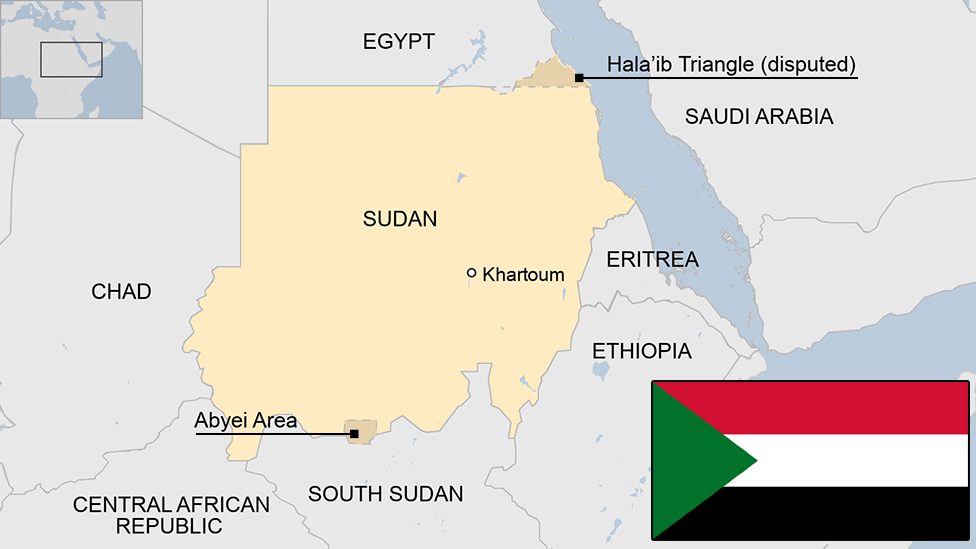Sudan protest: Police order officers not to intervene
- Published
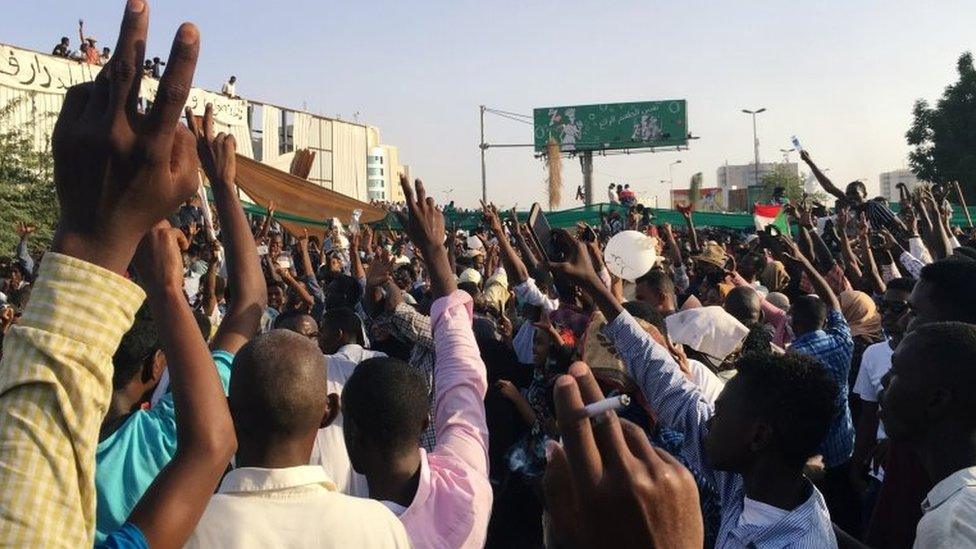
Thousands have joined the demonstrations since Friday
Sudan's police have ordered officers not to intervene against thousands of protesters who have demonstrated outside the army HQ in the capital, Khartoum, since Friday.
The protesters demand the resignation of President Omar al-Bashir.
Earlier, heavy gunfire was heard outside the HQ and there were reports soldiers protecting protesters had shot at government security agents.
The US, UK and Norway have called on Sudan to plan a political transition.
What have the police said?
A spokesman said in a statement that police had "ordered all forces" not to "intervene against the citizens or peaceful rallies".
"We call on God to preserve the security and calm of our country... and to unite the Sudanese people... for an agreement which would support the peaceful transition of power," the statement said.
Previous attempts to break up the crowds have led to reports of soldiers intervening to protect protesters from National Intelligence and Security Service (NISS) agents.
At least two soldiers are reported to have died since the demonstrations outside the HQ began.
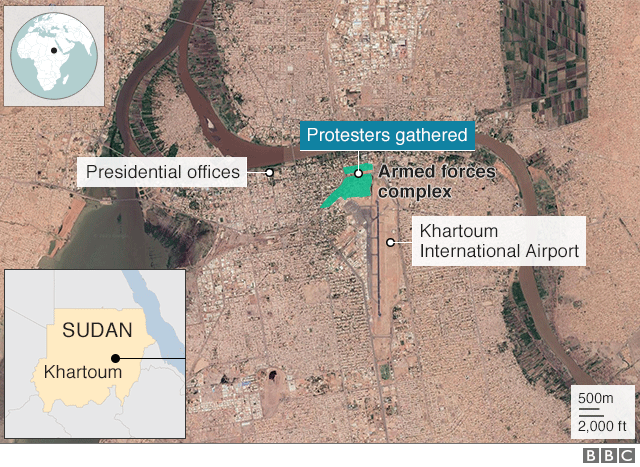

The country's interior minister said on Monday that seven protesters had been killed and 15 injured, while 42 members of the security forces had been injured. He added that almost 2,500 people had been arrested.
One protester, Ahmed Mahmoud, told the BBC that tear gas and live bullets had been used by NISS agents against protesters.
He said soldiers had provided sanctuary for protesters within their compound.
"It is pointless for Omar al-Bashir to continue using his thugs to get us off the streets as we are not going anywhere," he said.
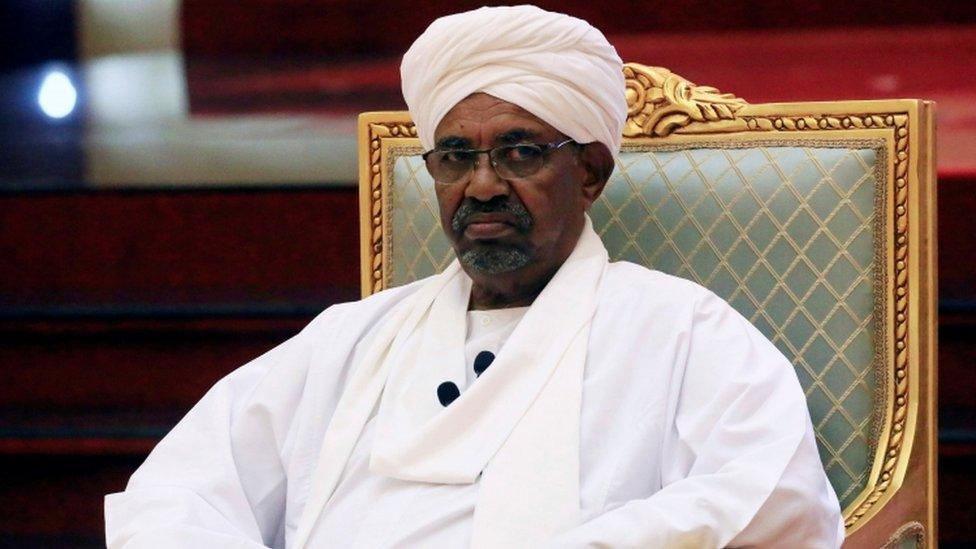
President Bashir declared a state of national emergency in February
Another protester told the BBC not everyone in the army supported the protest movement; the highest ranks tended to support the government, while lower ranks backed the protesters.
Dramatic video emerged on Monday showing soldiers firing at an unclear target as civilians took cover behind them. The protesters said the soldiers were responding to gunfire from NISS agents.
What is the international community doing?
There have been calls urging Sudan's government to refrain from using force against civilians.
The so-called troika on Sudan made up of the US, UK and Norway has urged the government to respond to the demonstrators' demands in a "serious and credible" way.
"Failing to do so risks causing greater instability. The Sudanese leadership has a grave responsibility to avoid such an outcome," it said in a statement.
United Nations Secretary-General António Guterres has urged all parties to "exercise utmost restraint and avoid violence".
What's behind the protests?
Protests against Mr Bashir, who has governed Sudan since 1989, have been under way for several months.
They were originally sparked by a rise in the cost of living, but demonstrators are now calling for the president to resign and his government to go
Sudan protests: So what's going on?
The protesters want the armed forces to withdraw their support for the government. Representatives of the protesters say they are seeking talks with the army regarding the formation of a transitional government.
Omar el-Digeir, a senior protest member, told AFP news agency the group were seeking a path "that represents the wish of the revolution".
Monday marked the third night of the sit-in, despite security force efforts to disperse the group.
The government has been criticised by rights groups for a heavy-handed response to the unrest.
Government officials admit 38 people have died since the unrest began in December, but the pressure group Human Rights Watch says the number is higher.
Why is the president controversial?
Mr Bashir's rule has been blighted by accusations of human rights abuses. He is subject to an International Criminal Court (ICC) arrest warrant over accusations of of genocide, war crimes and crimes against humanity.
The US imposed sanctions against the country more than 20 years ago, accusing Khartoum of sponsoring terror groups.
Last year, the Sudanese pound fell rapidly in value and inflation rose. The government then announced the price of fuel and bread would rise, sparking protests.
In February, it looked as though the president might step down, but instead Mr Bashir declared a state of national emergency.
The latest protests mark the 34th anniversary of the coup that overthrew the regime of former President Jaafar Nimeiri.

Have you recently taken part in the demonstrations? Get in touch by emailing haveyoursay@bbc.co.uk, external
Please include a contact number if you are willing to speak to a BBC journalist. You can also contact us in the following ways:
WhatsApp: +44 7555 173285
Tweet: @BBC_HaveYourSay, external
Send pictures/video to yourpics@bbc.co.uk, external
Text an SMS or MMS to 61124 or +44 7624 800 100
Please read our terms of use and privacy policy
- Published1 April 2019
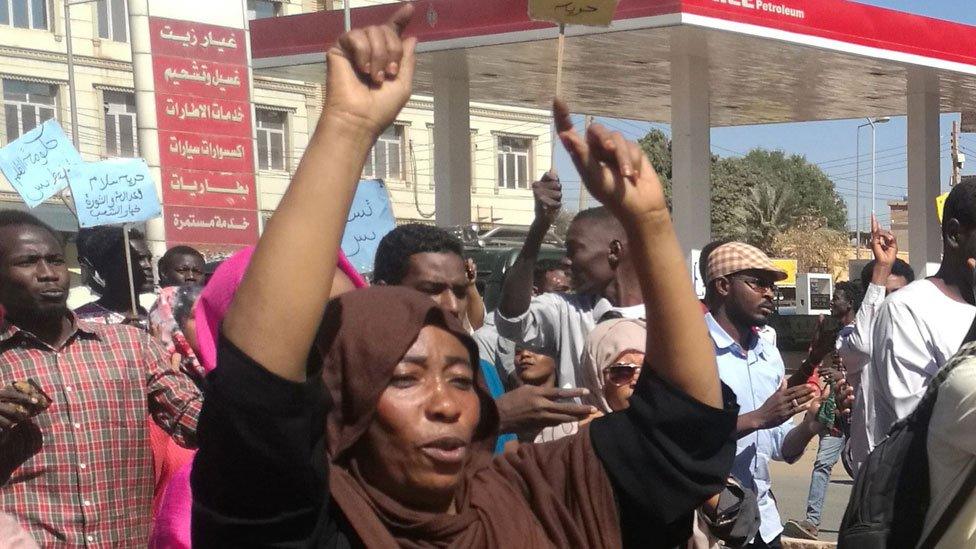
- Published18 January 2019
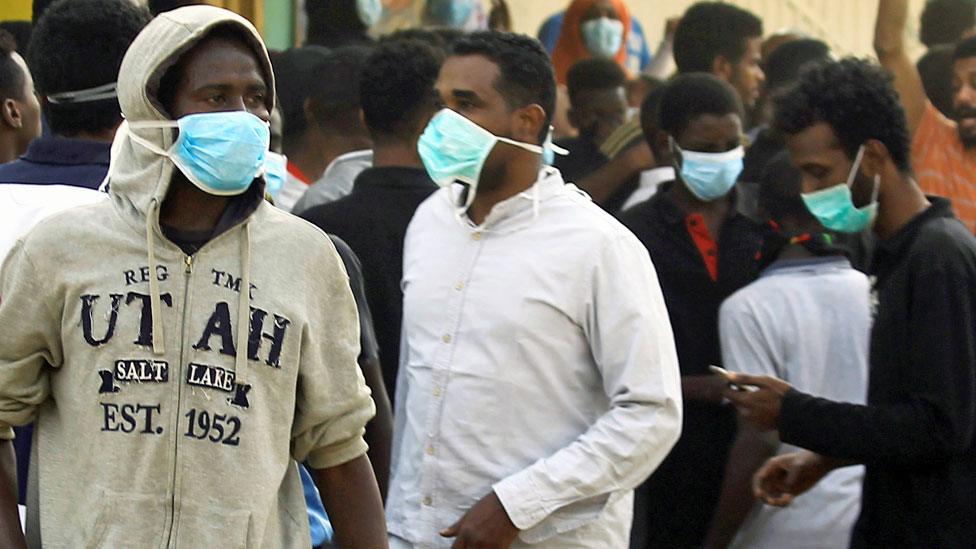
- Published23 February 2019
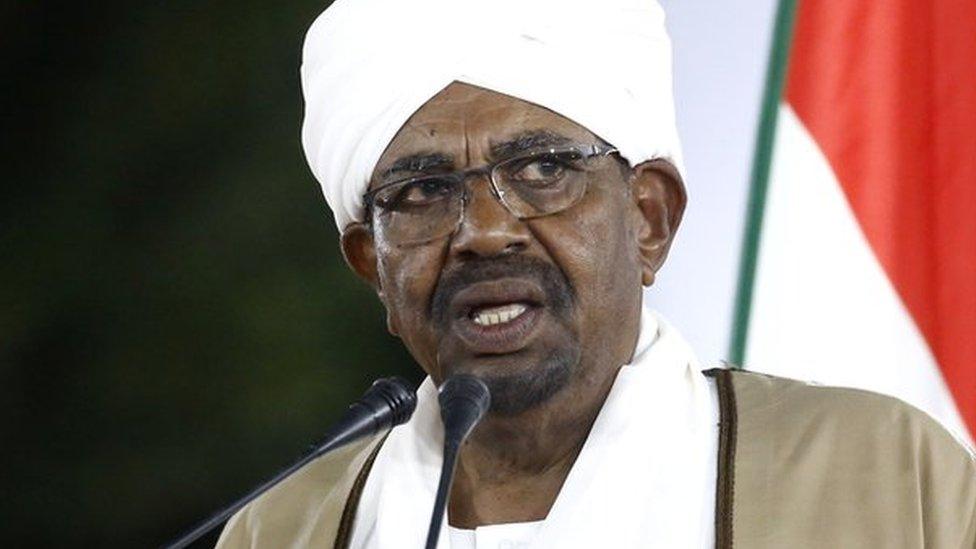
- Published13 September 2023
